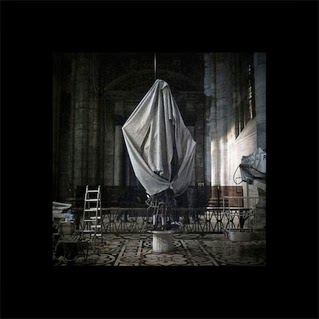Tim Hecker - Virgins
 | |
| Tim Hecker - Virgins |
You´re in a
dark place. All your senses seem deprived, malfunctioning and don´t serve as an
indication of time, space or anything close to reality. Then there is light.
Not of the bright and enthralling type as one might imagine in a transition from
death to the afterlife, more like a glimpse of something that doesn´t intend to
be crushing you –
With this metaphor the transition from Tim Hecker´s “Ravedeath 1972” to his newest effort Virgins seems to be described best.
With this metaphor the transition from Tim Hecker´s “Ravedeath 1972” to his newest effort Virgins seems to be described best.
As many
listeners might have first heard Hecker through his 2011 album, there is no
doubt that with every release, he furthers his lane of innovative instrumental
– any other tag such as ambient seems to be failing for me – music. His Ravedeath is best described as
nocturnal, maybe even depressing music. And this doesn´t necessarily mean synonymous
with sad and downbeat, but rather refraining from every color, black and grey
in tone and putting the listener through a set of emotions best described as
desolate. One can´t really say that Hecker made a much “upbeat” record with
Virgins (who´d want that anyway) but that he added a crucial color to the
compositions reminiscent of Ravedeath
and his Dropped Pianos – the color
white. And with this addition the listener is welcomed into a very different
experience of soundscapes, ideas and tones.
Already the
introductory track “Prism” seems to
glisten and give of a kind of warmth with its processed organs and what sounds
like many layers of synths piercing through it. After this, what even in length
could be described as the radiant parallel to 2011 “The Piano Drop”, on “Virgins
I” the listener isn´t thrown into any thick layer of sound but wanders
through hammered keys with the textures of noise slowly taking the forefront
again, just to drop out and repeatedly overpower the organic keys. Whilst
following “Radiance” feels like the
drony intermission that signifies the defeat of what felt like instruments
being played without any processing, “Live
Room I” leads back to the hammered keys – now clearly used as a kind of
motif – played higher and more delicately this time around
Here one
could come to the conclusion that Virgins
seems to be the invert of Ravedeath:
As the latter was a highly textured amalgamation of sounds that was here and then
graced with the sound of keys, on Virgins the keys more or less take the forefront
and the heckerean` static grandiose while still be very much present, is toned
down; not trying to crush the listener but reeling him in with a certain warmth
that almost gives of a churchly feel. And still, with the following pieces Virgins II and the sum of all “Black Refraction”, the sound never tires
out or becomes what might be associated as being ethereal. There is still very
much urgency and substance to the compositions of the tracks. This might be the
church music of the post-everything era, but very much so it doesn´t seem to
rest on itself or implications of anything to be searched after, the crystallized
textures and fine keys seem to be a hand out for active contemplation and a
sense of beauty any other contemporary adhering to the more general ideas of
music will never reach.
The
interlude “Incense at Abu Ghraib”
seems to be the introduction to a very stretchy closing sequence in a way. Sticking with
the sensation of a mass procession and the burning of incense, what was crafted
over the first half of the album now critters and crumbles away leaving many
warm traces and hints of its original components. The duo of Stigmata I + II tears away the bright washes of sound into the
previously heard sensations of Harmonium eschewing any crisp tones entirely. “Stab Variations” closes the circle of
light started in “Prism” and seems like the slow disappearance of what was in
comparison screaming in your face earlier.
After the
rising passage of light and clearing of perception - the movement from black
into sudden white, the experience yet again ends in a kind of greyish embrace
of sound. And right here one might find a spot of tedium in the album. With the
finish of Black Refraction, there doesn´t seem to be much more left to
experience and the high rise ends in a lengthy outro with many stages. But
still this fits the arc of this record and you´ll definitely not feel the
urge to end the experience any sooner then Hecker intended you to – you might
just not remember your way out of the church as much as the procession you were
graced to witness. Tim Hecker once again has created a unique experience
without any kind of repetitions. The more organic approach pays off very well
and one can definitely leave Virgins feeling lighter while still being overwhelmed
by the sheer beauty Hecker can create while eschewing harmony and somewhat
challenging the listening experience known to man.
Best Track: Live Room
9 / 10

Comments
Post a Comment